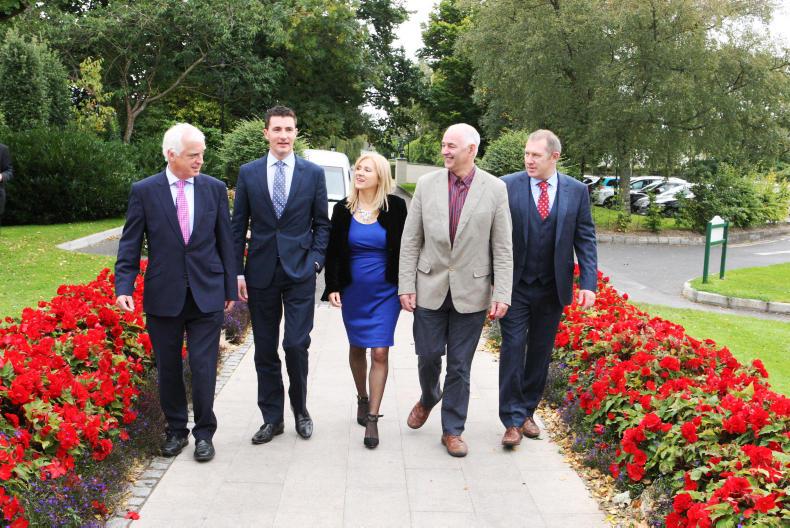Anti-microbial resistance is no longer an abstract issue, and the reality is that some patients will be denied surgery or treatment due to the risk of infection, making this a very political issue, the Animal Health Conference heard on Tuesday in Kildare.
Certain classes of antibiotics will no longer be available to farmers for use as they will be reserved for treatment of humans.
Animal Health Ireland (AHI) chair Mike Magan called on the Minister for Agriculture and Minister for Health to join forces and put an active team out there to make society aware of the growing debate around anti-microbial resistance.
“There is a lot of emotion involved in this debate but the right decisions will be made using science,” said Roy Geary, general manager of Zoetis and chair of the Animal & Plant Health Association (APHA).
“I’m not saying we have the answers to hand right now but I think we need to open up the debate about our local policy here in Ireland about what products are incentivised to be purchased. At the moment, products that are orally administered to animals have a 0% rate of VAT and everything else by and large has the full 23% rate of VAT.”
Geary made the point that if we want to lead the charge in reducing the use of anti-biotics on farm before EU legislation forces farmers to do so, then we need to take a look at structures already in place, such as VAT to incentivise the use of more preventative medicines. This is a trend that is already emerging.
“Do we wait for Brussels to change things or do we ask ourselves why we have a 0% VAT rate on antibiotics taken orally by animals on farm, yet we have full VAT on vaccines?” Geary asked the vets, department officials and animal health product manufacturers in the audience.
“Ten years ago, the ratio of products used in animals was roughly 42% to 58% in favour of antibiotics. It’s the complete reverse now in favour of vaccines. Farmers and vets are more conscious of trying to keep the disease out in the first place so that they don’t then have to go and treat it.”
Herd health
Prevention is better than cure, according to Galway-based vet, Conor Geraghty, who believes that the key society challenges of AMR and climate change can be dealt with together.
Preventing diseases through vaccination programmes can help increase the productivity of animals, which will mitigate impact on the environment.
“Profit monitor groups all veterinary costs together and when you’re out at a discussion group the guy with the highest veterinary costs is never the best. I think we need to group them into preventative and reactive vet costs,” Geraghty added.
Last week, the United Nations adopted a declaration that makes a commitment to tackle AMR. The 193 member countries of the UN pledged to improve the use of antibiotics on farm. Each country now has to develop a national action plan and increase the funding made available for improving monitoring of antibiotic use in the farming sector and to develop new medicines.






 This is a subscriber-only article
This is a subscriber-only article










SHARING OPTIONS: